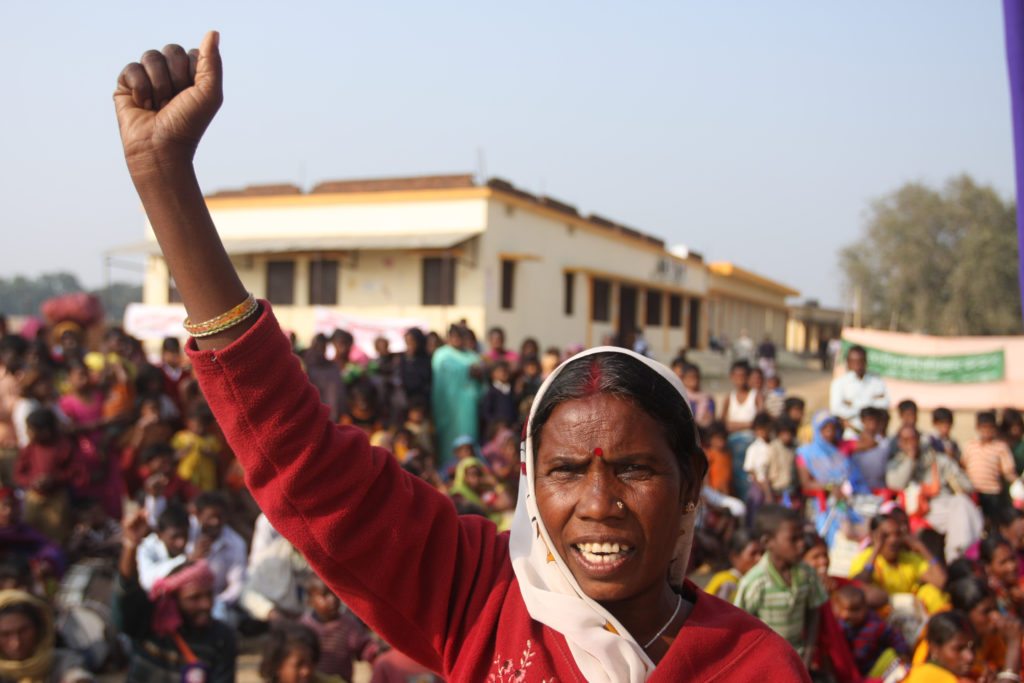1. Women farmers in India defy discriminatory land policies
After being denied land ownership for both their gender and their social caste, a group of 40 Dalit women farmers in southern India decided to do things their own way. They cleared an unused piece of public land and are now growing their own crops on the 2.5-acre plot. Their daily resistance forms a part of a larger movement led by Dalit youth, particularly young Dalit women. Across India farmers collectives are putting their demands before government officials. And their efforts are picking up steam. A few states are helping women farmers form collectives and providing them loans to lease private land.
2. Young African refugees in Uganda are helping girls go to school
Twelve years ago, four refugee boys from Congo, Burundi, Rwanda and Sudan worked together to build a classroom for kids in their refugee settlement in Uganda. Today their group has grown into a nonprofit called COBURWAS, named after the founders’ home countries.
Dedicated to educating young people, COBURWAS is providing a safe space for girls to focus on their education and to also find support for dealing with sexual harassment and abuse. Besides encouraging female students to stay in school, COBURWAS works with funders to provide academic scholarships for higher education.
3. Indigenous women occupy front lawn of Washington state capitol to urge climate action
Oh, it’s the Climate Countdown! This week hundreds of protestors flooded the Washington state capitol building to call for climate action. Among them were seven Indigenous women and their supporters who are occupying the capitol lawn in tarpees (a type of teepee). Barring arrest, they plan to stay until legislators act on climate change and respect native treaty rights.
A key concern of the Climate Countdown campaign involves the Kinder Morgan Trans Mountain pipeline. The activists are urging the governor to oppose the expansion of the pipeline, which is already putting Indigenous communities and the environment at risk. The pipeline also threatens the land rights of Indigenous people living along its route.

